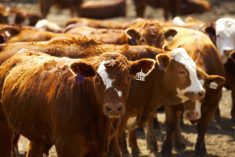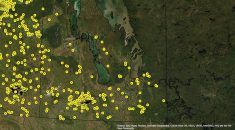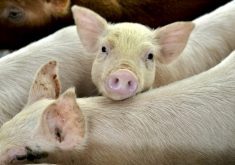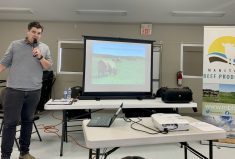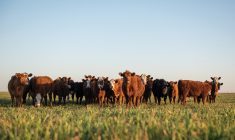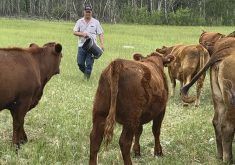MASC says changes to the Western Livestock Price Insurance Program will give cash-starved producers more flexibility when it comes time to pay.
Farmers now have until 30 days after their policy expires to pay premiums, rather than having to pay at the time the policy is purchased.
MASC has introduced a payment on account option to expand the WLPIP payment window, the province announced in early November.
The deferred payments will be subject to interest, the same press release said.
David Van Deynze, MASC vice-president of innovation and product support, says the change will allow producers to buy into the program without first freeing up capital for the premium payment, and will instead get to pay their fees when it works better according to cash flow.
Read Also
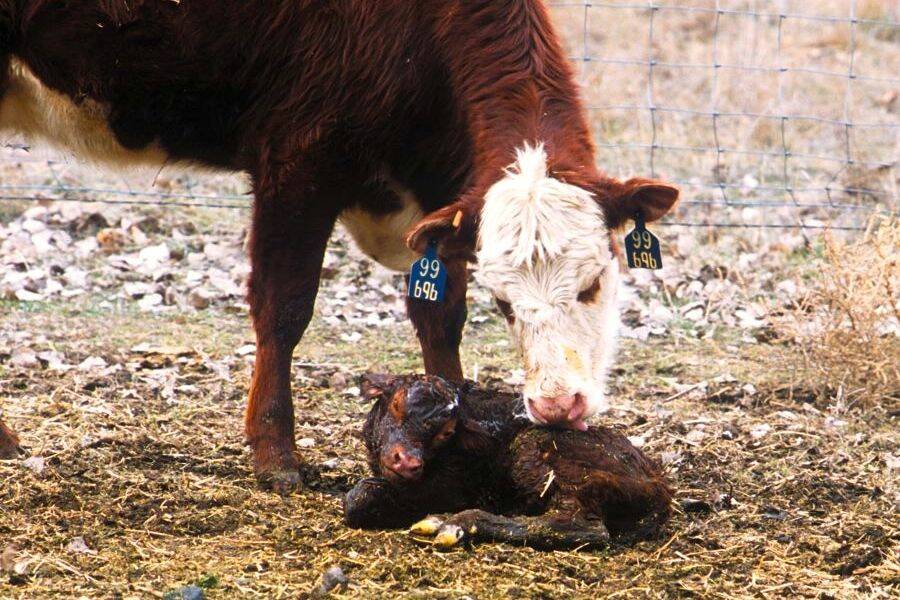
Scours doesn’t hibernate: Infectious risks for cold weather calves
Identifying specific pathogens and management flaws is essential for effective calf scours treatment and prevention on your farm.
“Producers essentially needed to have cash in hand if they wanted to purchase a WLPIP policy up until this point,” he said.
WLPIP was introduced in Manitoba in 2014, pitched as a means to ease risk of price volatility. An overview of the program, published by the provincial government, argues that the program gives an “insurable floor price,” by allowing producers to insure livestock based on a market-driven price as well as selected coverage level.
About 40,000 head of livestock in total are insured under the program in Manitoba, and producers bought 549 policies since the start of 2018.
Van Deynze said changes were in response to producer feedback and the desire for more flexibility, similar to current crop insurance under MASC. The agency allows a farmer to defer crop insurance payments until harvest.
“We wanted to have something similar for those folks, for the cattle producers,” Van Deynze said.
Changes also open the way for incremental payments. Van Deynze said MASC would accept payment in several chunks, such as postdated cheques, as long as the full amount is paid in the allowable time frame.
Manitoba’s beef industry sector groups have generally welcomed the change.
Duncan Morrison, executive director of the Manitoba Forage and Grassland Association, said they viewed the change as “a positive move from a cash flow perspective for producers.”
Brian Lemon, Manitoba Beef Producers general manager, also praised the change, saying the shift gives a helping hand to producers, particularly young producers, who bear significant loan burdens.
“It helps them with any sort of cash management issues and allows them to actually market their cattle if they choose ahead of actually having to pay the premium. It’s a huge improvement to the program, from our perspective,” he said.
Changes are largely expected to impact the beef industry, although the Western Livestock Price Insurance Program is open to both hog and cattle producers.
Most WLPIP policies in Manitoba are calf policies, Van Deynze said, although he added that the payment on account option might draw in more business from the pork sector.
“Part of the reasons it’s not been attractive is the cost of the program almost outweighs the benefits it could potentially bring. So, producers have been reluctant to use the tool,” Manitoba Pork Council general manager Andrew Dickson said. “It’s there. We’re not discouraging people from using it, but some producers prefer just to be on cash and they want to go up and down. Some producers are doing forward pricing, and we’ve got some producers who are essentially an integrated system, in other words, the price of the pig has not been a major issue. They own the pig all the way through to processing.”
MASC has paid out about $3 million under WLPIP since 2014, MASC says.






